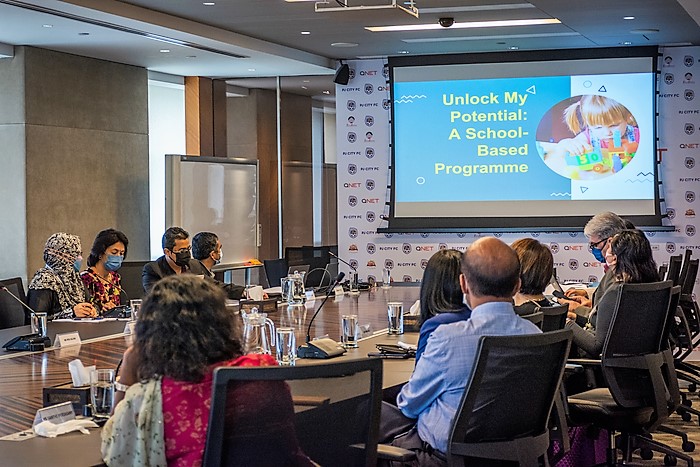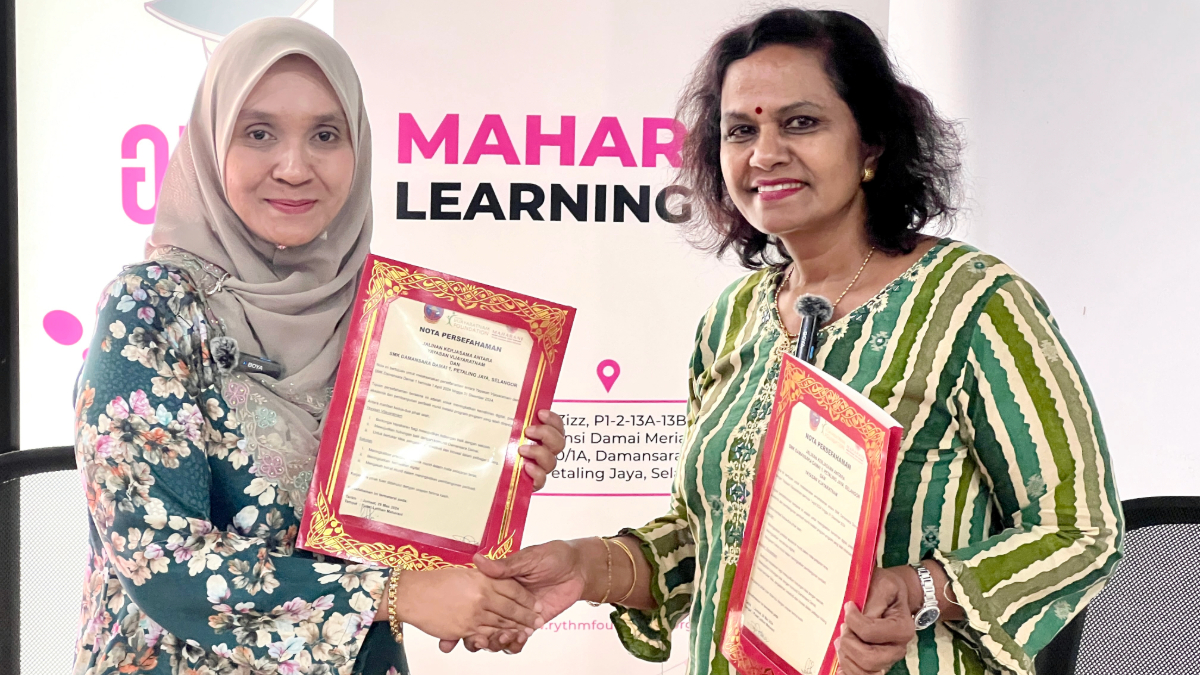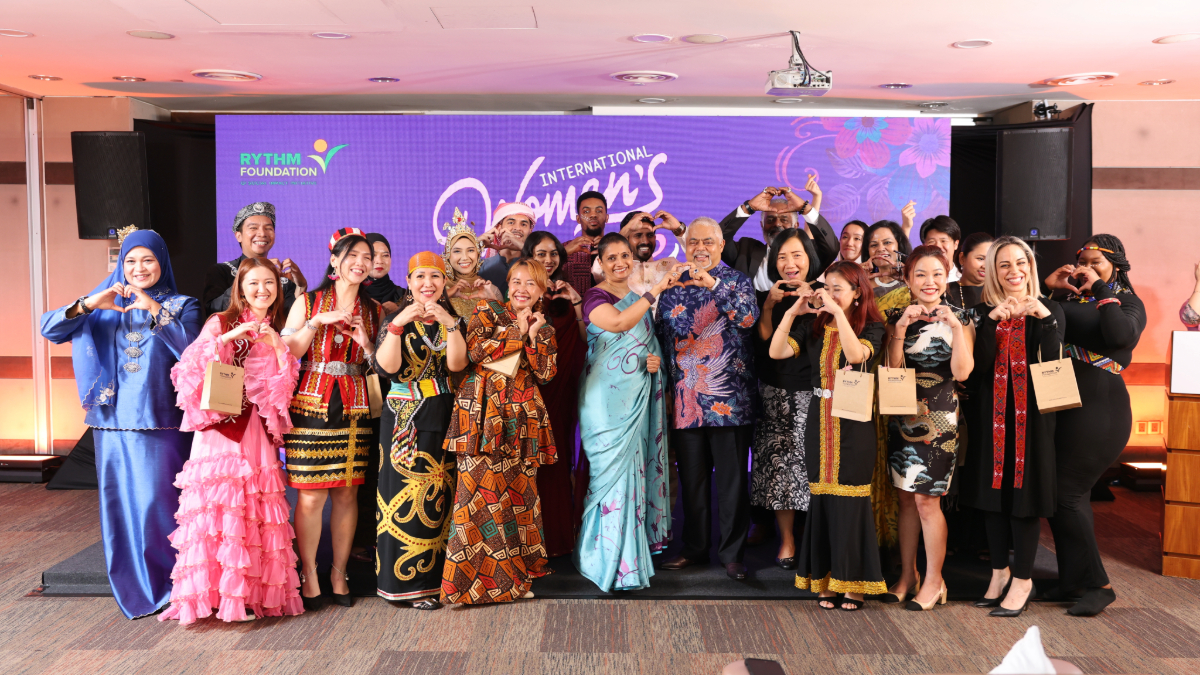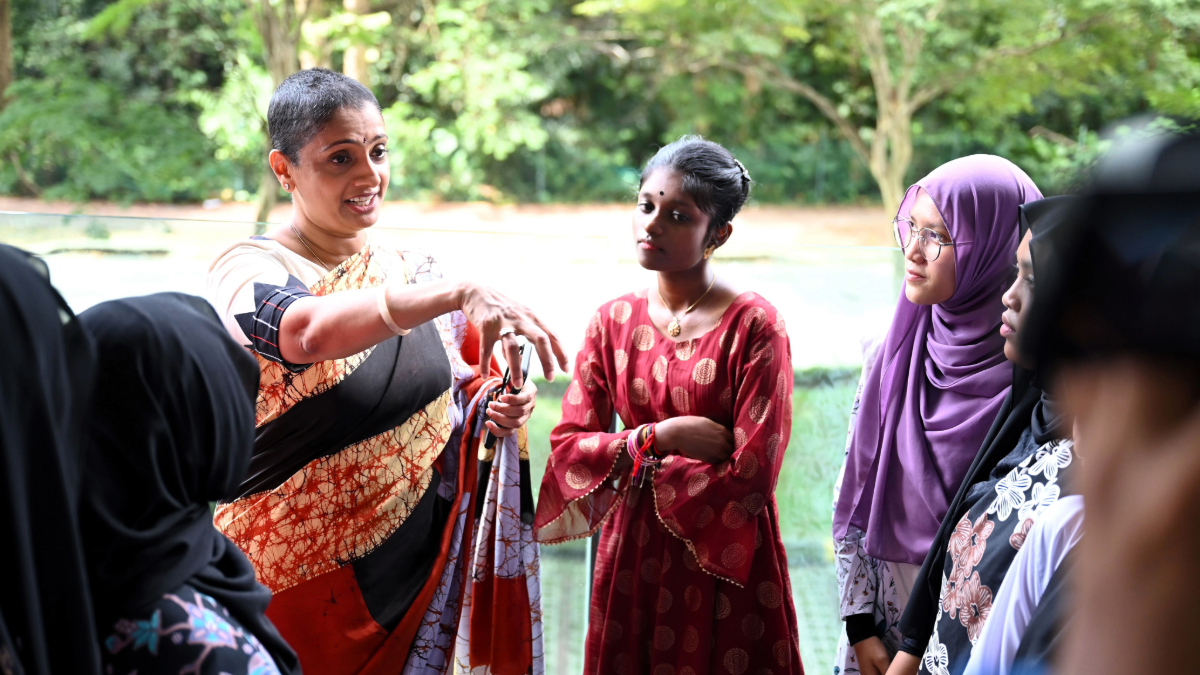The ‘Unlock My Potential: A School-Based Programme’ report follows a two-year study by Universiti Malaya for RYTHM.
RYTHM Foundation believes that all children have varying degrees of potential waiting to be unlocked by a more inclusive, equitable and holistic education system that nurtures each child’s strengths.
With this belief and a commitment to driving policy change, RYTHM engaged a research team from Malaysia’s Universiti Malaya (UM) in 2020 to uncover the reality of special needs education (SNE) in the country for a proposed model SNE school.
The study’s first phase of surveys and interviews showed teachers’ readiness for inclusive education. However, their willingness varied significantly on experience and exposure to training. The 523 participants and interviewees included educators, parents, and representatives from NGOs.
The second and third phases involved developing a curriculum for the projected school and formulating its model. In June, UM hosted a roundtable discussion with public and private education experts to delve deeper into the model.
Survey and Interview Discoveries
Earlier this month, the team behind the study presented its findings to RYTHM Chairperson Datin Sri Umayal Eswaran, Head Santhi Periasamy, Principal of RYTHM’s special needs institution Taarana School, Dr Sunitha Sivakumaran, and directors of QI Group. RYTHM is the social impact arm of QI.
Santhi lauded the team’s efficiency in completing the study months ahead of the September 2022 target. “We are highly appreciative of the team’s in-depth research. As a result, we now have a clear direction for what comes next in making this exemplary school a reality.”
The university’s research team – Associate Professor Dr Rafidah Aga Mohd Jaladin, Associate Professor Datin Dr Thilagavathi Shanmuganathan, and Senior Lecturer Dr Donnie Adams Paramasivam – articulated the mechanism of the study in greater detail before presenting their suggestions for the world-class institution.
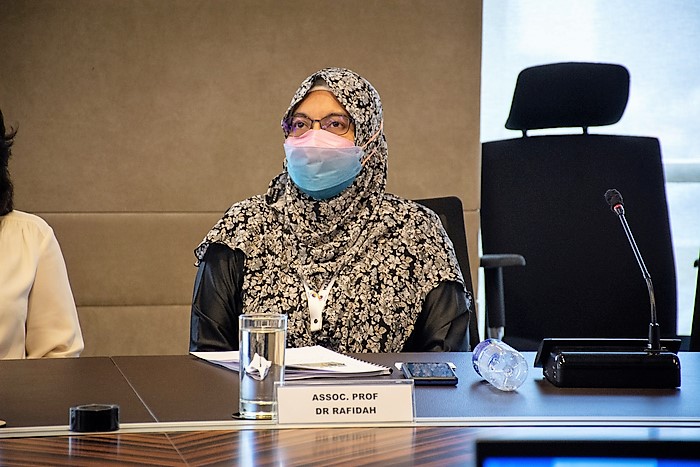
Dr Rafidah: The study provides RYTHM with the opportunity to contribute to Malaysia’s SNE landscape.
Dr Rafidah, who led the RYTHM-commissioned ‘Programme for Enhancing the Holistic Development of Children with Special Needs’ research, said in her opening remarks:
“This research’s empirical evidence provides RYTHM with the impetus for the ideal SNE school and the opportunity to contribute to Malaysia’s SNE landscape.” The group dubbed its findings ‘Unlock My Potential: A School-Based Programme.’
“‘Unlock’ unravels the ability of special needs children and recognises their talent, while ‘My Potential’ facilitates the children to discover their talents, abilities, and skills,” Dr Rafidah explained.
The team launched the study by analysing the strengths and weaknesses of Malaysia’s existing school-based SNE programme.
Dr Donnie shared, “With the vision and mission (of the proposed school) in mind, we needed to understand the prevailing policies and practices to determine if we could adopt or improve them. So, we explored various public and private schools and NGOs offering special needs education programmes.”
The survey’s mean tally of 3.2362 underscored the country’s teachers’ eagerness for inclusive education but differed in their experience (or lack of knowledge and practice) teaching SNE.
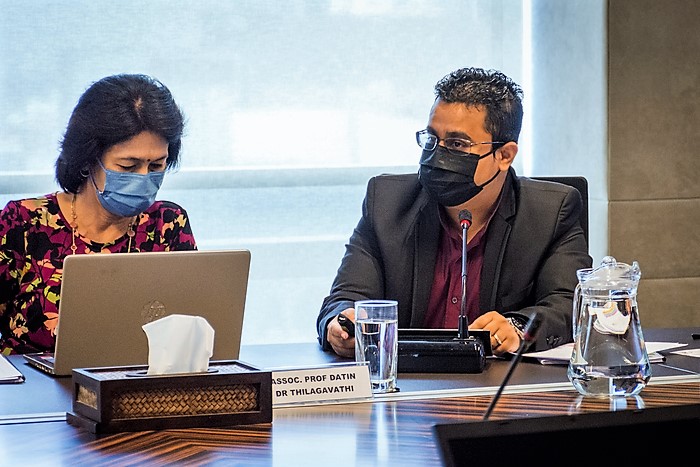
Dr Donnie (right) says the study initially analysed the strengths and weaknesses of the existing SNE programme.
Respondents’ Recommendations
The participant interviews involved thematic analyses of the strengths, weaknesses, challenges, and suggestions for improving inclusive education.
Recommendations for teachers included developing creative teaching strategies, skills and methods that match SNE students’ learning goals. Likewise, the respondents suggested forming a comprehensive educational system that prioritises students and teachers.
“The interviewees also suggested that such schools offer more meaningful and comprehensive activities like swimming, drama, music and movement, and sensory integration classes, among other activities,” Dr Donnie added.
From ‘Cradle to Career’
Echoing RYTHM’s vision of a school that also produces independent individuals of all abilities, the team outlined a noble goal that nurtures the planned institution’s students from “cradle to career.”
Dr Thilagavathi described the concept as helping children discover and gain awareness of their strengths early and promoting their talents throughout school into adulthood.
She said a primary concern among education experts is that the current SNE curriculum unjustly attempts to treat or compensate for a particular disability.
“What we are suggesting is something different. We propose a much-needed ecosystem that guides a child from cradle to career. This proposition has us excited because we can already picture this school in our minds.
“Naturally, this involves ensuring that this future school has qualified and well-trained educators. However, the concept’s success also depends on the involvement of parents and the community in developing each child’s life journey,” Dr Thilagavathi noted.
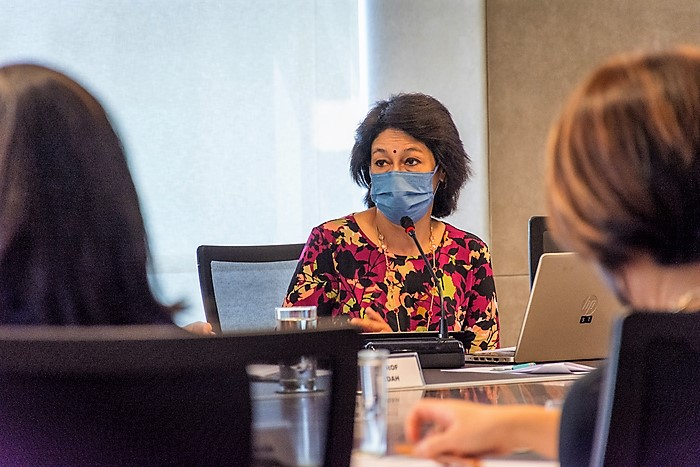
Dr Thilagavathi says the current curriculum unjustly treats or compensates for a particular disability.
The suggested model distinguishes the programme into six pillars: parental involvement and participation, curriculum, teacher development, resources, services, and facilities and infrastructure.
An element of the course includes citizenship education in the curriculum. The researchers established that awareness of civic knowledge could help SNE students understand their value and role in society.
Another crucial component of the model involves school-leaver vocational training and support. “This school will preferably chart each student’s course for the next five years after they complete their education, so they don’t feel abandoned,” Dr Thilagavathi said.
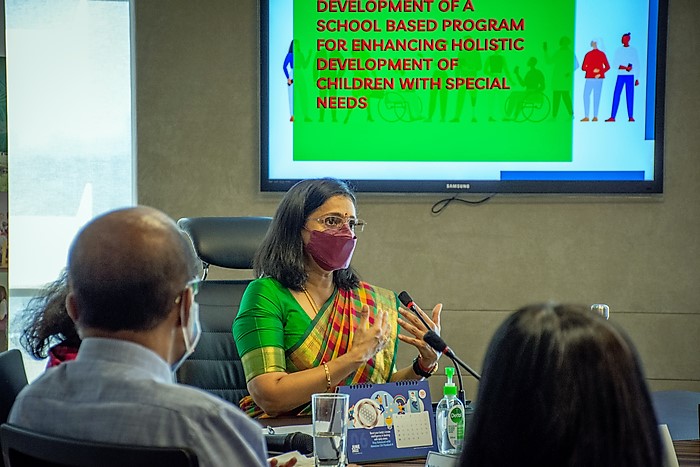
Datin Sri Umayal: The proposed model echoes the Foundation’s vision for a school for all differently-abled children.
Forging the Road Ahead
Datin Sri Umayal applauded the research team’s comprehensive study and findings. “This excellent model echoes our vision of an exceptional institution that caters to all differently-abled children in Malaysia.
“I have always believed that building a school like this will help convince the government that we have something feasible for Malaysia’s public special needs education sector, albeit on a smaller scale.
“The reality is that many children cannot fit into the existing inclusive school system. So, where do they go to receive an education if we do not build these schools for them?” Datin Sri Umayal said.
RYTHM is committed to staying the course with the school. “We will examine the findings and approach the set-up from a practical sense. We hope to press on with UM to help us encourage the government to consider the findings and recommendations in the near future.”
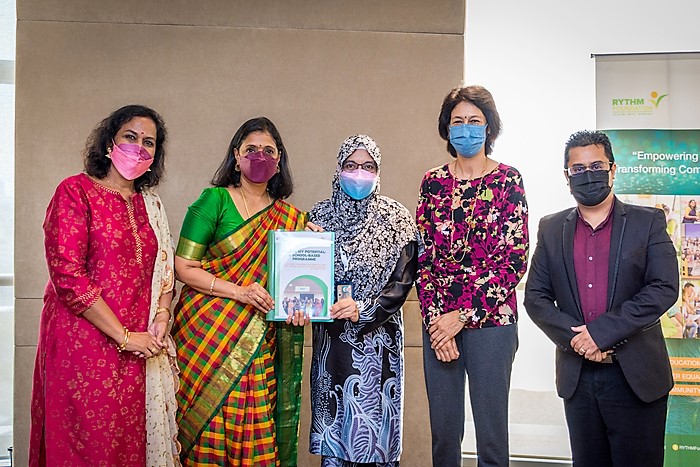
From left: Santhi, Datin Sri Umayal, Dr Rafidah, Dr Thilagavathi, and Dr Donnie.

